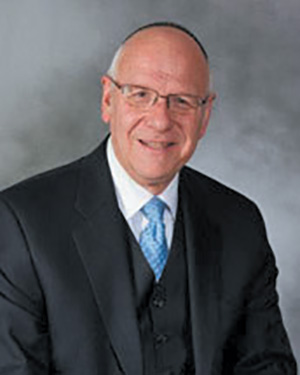
Parshat Shoftim
“Pitzchu, ranenu yachdav chorvot Yerushalayim!” Whose heart can fail to be moved? Whose eye could fail to tear upon hearing the moving words of Yeshayahu found in the final pesukim of our haftarah? Words that call out to the ruins of our Holy City to sing in unison as they witness Hashem comforting His people and redeeming Jerusalem! But these closing phrases come only after a perek that speaks directly to Israel, urging them to look at their own deeds in order to understand the tragedies that befell them and in order to learn how to prevent any future punishments.
The well-known opening words of this week’s selection, words addressed to the grieving nation, “Anochi, Anochi Hu menachemchem, It is I, only I, Who comforts you,” are often misunderstood. In fact, they are not opening words of, but they form a response to, a question posed through the prophet by the people. “Why must we suffer?” they asked. “Why do you not perform miracles for us as You did years ago in Egypt?” they cried. God responds to these questions with the powerful exclamation “Anochi, Anochi…”—“I, and only I, can comfort you!” Hashem challenges the nation by asking why they were so terrified of the enemy, explaining that if, indeed, they knew that God has such power they should fear no one. The truth is, however, that you forgot Hashem and abandoned your belief in Him. This, explains the navi, is the reason for your fear and your punishment.
The haftarah closes with the call of Yeshayahu to Tziyon to arise from the ashes, to clothe herself in strength and in glory, for the punishments have ceased and her enemy will not enter the Holy City again.
Fittingly, for this parsha of “Shoftim,” “Judges,” God’s promise to punish the enemies who wrought such ruin upon Israel is a statement that ultimate justice requires proper response to evil. Thus, as Israel was punished for her misdeeds, so will the enemy be punished by the Ultimate Judge. “Tzedek, tzedek tirdof,” the clarion call that begins our parsha, is not only a demand directed to the judges, the leaders and the people, but a promise reflecting an essential trait of the Holy One as well.
By Rabbi Neil N. Winkler
Rabbi Neil Winkler is the rabbi emeritus of the Young Israel of Fort Lee and now lives in Israel.













